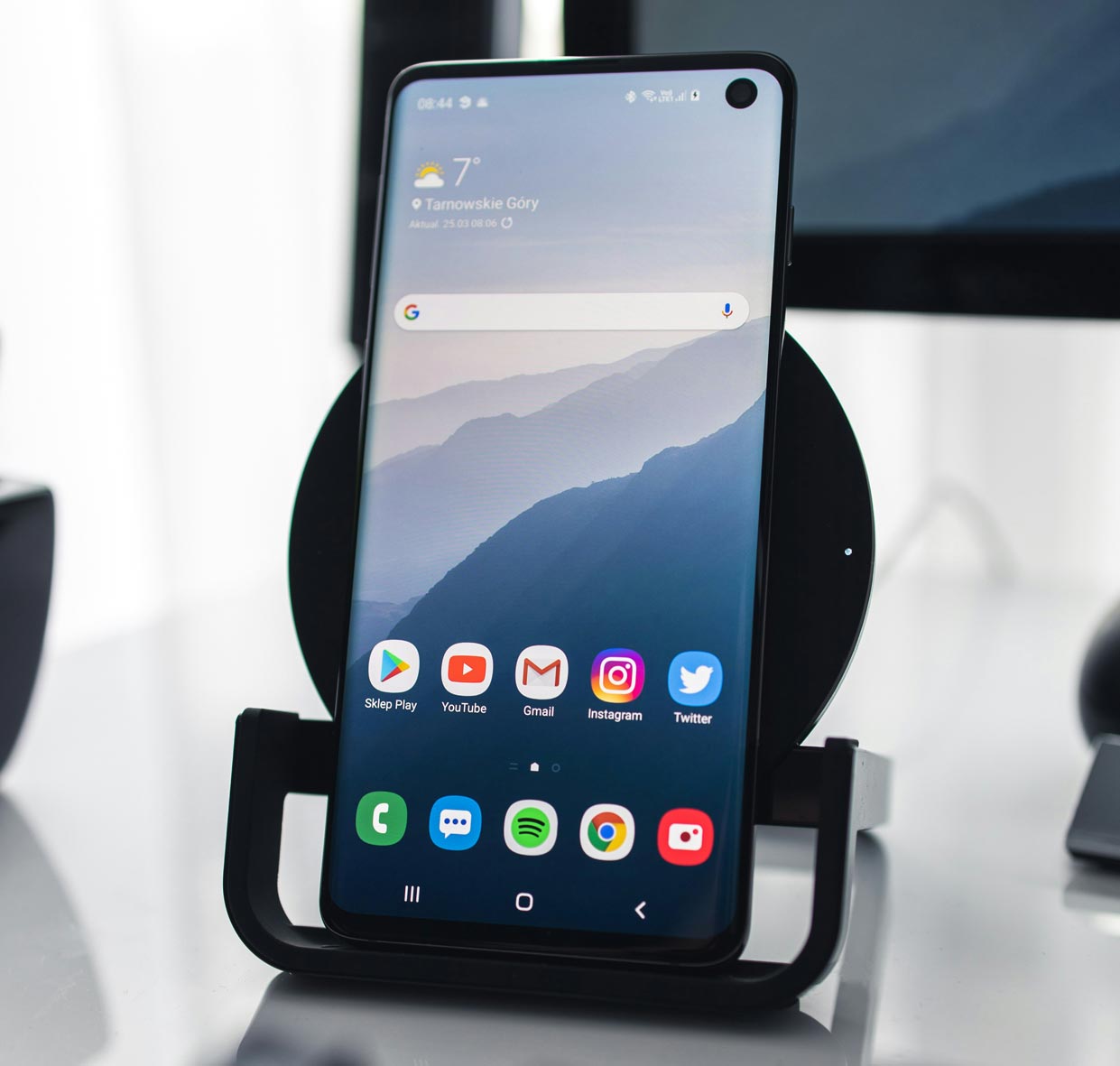Hybrid App Development Services Company
Reliable hybrid mobile apps optimised for conversion.
Our hybrid mobile App development company services harness the power of both native and web app technologies to deliver versatile, scalable, and secure hybrid solutions.
Delivering for our clients for almost 30 years
Outsource Hybrid Application Development to a Dedicated Team
Our Comprehensive Web and Mobile App Development Services
Our Development Services in More Detail
- Develop a New Hybrid App
- Begin a new era of innovation with our custom hybrid app development services. We craft mobile and web apps that combine the best features and functionality, tailored to your unique vision.
- Smooth Hybrid Mobile App Migration
- Elevate your existing applications with our hybrid app migration services. We ensure a flawless transition for your app across platforms, preserving data integrity and enhancing overall performance.
- API and Hybrid App Development Integration
- Enhance your hybrid app’s functionality with our expert API integration. Our team specialises in embedding powerful APIs, ensuring seamless operation and improved user connectivity.
- Hybrid App Project Recovery
- Facing challenges with your hybrid app project? Pulsion offers recovery services, identifying and resolving critical issues to realign your project with its goals.
- Harnessing Hybrid App Resources
- Utilise the combined strengths of iOS and Android with our expertise. We optimise your hybrid app’s performance by tapping into the latest technologies and tools from both ecosystems.
- Custom Enterprise Mobility Solutions
- Transform your business with our tailored enterprise mobility solutions for hybrid apps. Pulsion enhances your organisation’s flexibility, efficiency, and productivity in a mobile-first world.
- Hybrid App QA & Testing
- Ensure the excellence of your hybrid app with our comprehensive QA and testing services. We proactively identify and rectify issues, delivering a seamless and robust user experience.
- React Native for Hybrid E-Commerce Apps
- Expand your market presence with a custom hybrid e-commerce app. Pulsion crafts secure, intuitive, and user-friendly mobile commerce solutions using React Native, broadening your digital reach.
Hybrid application development presents numerous advantages, particularly for businesses seeking to maximise their reach and efficiency in a competitive mobile app market. Here are some key reasons:
Pulsion is recognised as an established service provider of hybrid mobile app development solutions, setting a high standard in the UK market. As a hybrid app development company with nearly 30 years in digital product development, Pulsion offers deep expertise and innovative solutions.
Our unwavering commitment to delivering superior quality and prioritising client contentment distinguishes us in the field of app development.
Our customised hybrid mobile app development services are strategically tailored to align with your business objectives. Each solution is meticulously crafted to elevate user engagement, increase conversion rates, and seamlessly integrate with your existing digital product suite.
We specialise in bespoke hybrid mobile and web applications, blending the best of iOS and Android platforms, to keep you at the forefront of technology Our expert team of hybrid app designers is committed to helping you achieve your goals, ensuring excellence across all platforms.
Our approach ensures a seamless user experience across multiple platforms, combining the best of both worlds to meet diverse business needs and user expectations.
With our hybrid app development services, we merge the best of both worlds – the versatility of web technology and the performance of native apps.
This approach allows us to develop cutting-edge apps that can be launched on both iOS and Android platforms, including the Apple App Store.
Our expertise ensures that your hybrid app stands out, offering a seamless experience across all devices.
At Pulsion, we pride ourselves on being a trusted partner for businesses navigating the dynamic landscape of Machine Learning (ML) and Artificial Intelligence (AI), especially in mobile app development. Our extensive expertise, grounded in both academic qualifications and practical experience, allows us to deliver innovative mobile solutions tailored to our clients’ unique needs.
ML technology is a core aspect of our mobile app development services. We leverage ML to automate various processes across different data types, including text, images, audio, and video. This versatility demonstrates our commitment to enhancing efficiency and reducing costs for our clients through mobile platforms.
Our technical expertise in mobile app development covers several ML domains, such as:
- Generative AI
- Computer Vision
- Natural Language Processing
- Recommender Systems
As a leading software outsourcing company specialising in advanced ML services for mobile apps, we apply these technologies across various industries. Our solutions improve customer service through streamlined mobile operations, ensure quality in mobile user experience, and automate routine tasks for cost savings. This range of applications highlights our ability to leverage AI for meaningful business outcomes in mobile environments.
Our ML proficiency involves handling large datasets to fine-tune models for complex scenario analysis, providing businesses with valuable insights for decision-making on mobile platforms. We also enhance our mobile ML services with cloud technology, offering secure and scalable solutions on platforms like AWS and Azure, using services such as AWS Lex and Azure Cognitive Search.
At Pulsion, we excel in custom mobile app development outsourcing, creating intelligent apps that integrate advanced AI capabilities. Our AI-enhanced mobile apps offer improved user experiences with advanced functionality and intelligence, ensuring these applications are consistently accessible and operational. This focus on mobile solutions improves customer service and provides valuable data insights.
Our approach to mobile ML projects starts with detailed discussions and requirement analysis, followed by designing and proposing solutions that meet our clients’ goals. After deployment, we offer continuous support to maximise the benefits of our mobile solutions.
Combining our expertise in ML with our custom mobile app development skills, Pulsion stands out as a leader in AI-driven mobile software development outsourcing. Our commitment to automating and improving business processes through mobile technology makes us an ideal partner for organisations seeking to harness AI for transformative advancements in the mobile space.
Increasingly, our focus on data science services is a crucial part of our commitment to delivering innovative digital solutions, particularly in hybrid app development. Our expertise allows us to delve into data analytics, providing in-depth insights essential for understanding business dynamics, customer behaviours, and market trends. This analytical approach is a cornerstone of our digital innovation strategies.
Our data science capabilities are enhanced by our partnerships with Amazon Web Services and Microsoft Azure, ensuring access to cutting-edge technology solutions for hybrid app development.
Our team’s extensive experience in custom software development and cloud migration greatly complements our data science services. This holistic approach ensures that we are perfectly positioned to understand and meet the unique project requirements of our clients in hybrid development environments.
Each solution we develop is customised and centred around the specific business objectives of our clients. Whether the goal is to drive efficiency, increase revenue, or reduce overhead costs, our data science services are tailored to deliver measurable results through hybrid apps.
This client-focused approach has established us as a trusted provider in both the public and private sectors, consistently delivering high-quality, innovative hybrid solutions since our inception in 1995.
At Pulsion, we understand that exceptional UI/UX design is crucial for the success of hybrid app development. That’s why we integrate top-notch design services into our comprehensive software solutions. Throughout the development process, we prioritize the end user, tailoring hybrid apps to meet and exceed client expectations and standards.
We adhere to industry-standard design principles and practices, such as:
Human-Centred Design
Our approach begins with understanding the users’ needs, behaviours, and motivations through observation, user feedback, and usability testing. This ensures that the final product provides a highly relevant and valuable experience for the users.
Responsive Design
We ensure that our hybrid apps function seamlessly across a wide range of devices and screen sizes, from desktops to mobile phones. Our flexible layouts adjust dynamically to provide an optimal user experience, regardless of the device.
By integrating these design methodologies into our hybrid app development processes, we guarantee that the end user is satisfied with their experience. At Pulsion, our commitment to high-quality UI/UX design is a key factor in delivering hybrid app solutions that not only meet but exceed our clients’ expectations.
Drive Your Project Forward
We’ve got your tech stack covered
We are proficient in various programming languages, tools, and frameworks.


The Benefits of Hybrid App Development
Our Hybrid App Development Benefits at Pulsion
There are many different stages of the web and mobile App development process:

Case Study: Accourt and Pulsion Collaboration
In collaboration with Accourt, Pulsion spearheaded a groundbreaking project to overhaul an obsolete Fraud Management System for a leading UK financial institution. The legacy system, built on SharePoint, faced challenges in reporting, scalability, and user interface. Pulsion implemented a state-of-the-art, serverless solution hosted on Amazon Web Services (AWS), providing a robust, scalable, and cost-effective alternative.
The AWS serverless architecture resulted in reduced infrastructure costs, eliminated maintenance issues, ensured scalability, and enhanced reliability across multiple Availability Zones. The new system accommodates over 2,000 users and handles 20,000 transactions per month. It has successfully undergone independent audits, underscoring Pulsion’s commitment to high-quality delivery. Vaughan Collie, Managing Partner at Accourt, lauded the project’s outcomes, emphasizing the system’s robustness and efficiency.

Hybrid Development Outsourcing Models
Extended Team Augmentation Model
In this approach, you outsource dedicated hybrid programmers who work remotely to support your existing development team. They operate from their own locations, bringing specialised skills to enhance your team’s capabilities.
This model provides the flexibility to scale your development resources as necessary, allowing you to add extra support during peak periods or for high-intensity projects. It is also more cost-effective than employing permanent developers, reducing the overall development and maintenance costs you would otherwise face.
When to Choose This Kind of Extended Team Model
- When you need to outsource dedicated developers to temporarily boost your team’s skill set.
- When you have demanding short-term projects that don’t justify hiring permanent staff.
- When you require expertise in a specific programming language that your in-house team is not familiar with.

Project-Based Dedicated Development Model
Our second outsourcing model allows you to outsource and hire dedicated developers or teams to manage the entire project as an outsourced team, ideal for working across different time zones and large tech stacks needed.
When to Choose This Kind of Extended Team Model
- When you have a well-defined project with clear timelines, milestones, and end goals.
- When you need to keep costs fixed, typically paying a flat rate per project.
- When the project requires a dedicated team of developers that you do not have the time to manage yourself.

Fully Managed Team Model
In the fully managed team model, you’ll hire a dedicated hybrid development team to work exclusively on your project. This team will operate remotely but will function as an extension of your in-house team, providing seamless integration with your operations. The team includes all the dedicated developers you need, along with a project manager to oversee the entire process. Depending on the project’s requirements, other experts, such as user experience designers, may also be included. This approach accelerates project delivery compared to building your own team from scratch. All resources are fully skilled, experienced, and ready to start immediately.
When to Choose This Kind of Extended Team Model
- When you have a large or complex project requiring a diverse range of skills and specializations.
- When you lack the in-house software developers or expertise needed for the project.
- When you need a dedicated project manager in addition to the development team and do not want to divert internal resources or lack development managers.

Book a Free Consultation
Receive custom solutions, recommendations, and estimates. One of our account managers will be in touch with you shortly.
Hybrid App Development FAQs
Cost and Demand
The cost of hybrid app development can vary widely based on the complexity of the app, the number of features, and the development time required. On average, hybrid app development can range from £15,000 to £150,000. Utilising a good development company can help reduce risks and costs, as studies show that up to 50% of internal software development projects fail to meet their objectives. By leveraging external expertise, you can ensure higher success rates and quality outcomes.
Good Read: How Much Does it Cost to Develop an App in the UK
Good Read: How Much Does It Cost to Develop Software?
Good Read: The Cost of Outsourcing App Development in 2024
Handy Tool: Estimate Your App Development Cost
Yes, Pulsion offers workshops and training sessions tailored to your team’s needs. These sessions can help your team better understand hybrid app development processes and technologies, ensuring a smoother development journey.
Several factors influence the cost of hybrid app development, including:
- The complexity and functionality of the app
- The number of platforms the app will support
- Design and user interface requirements
- Integration with third-party services
- Maintenance and updates post-launch
Yes, ongoing costs are associated with maintaining a hybrid app. These can include costs for hosting, updates, bug fixes, security patches, and new feature additions. Regular maintenance ensures that the app remains functional and secure over time.
The development time for a hybrid app can range from a few months to over a year, depending on the complexity of the project, the number of features, and the development team’s size and experience. On average, a moderately complex hybrid app may take about 4-6 months to develop.
Suitability and Choices
Hybrid app development allows you to create a single app that can run on both iOS and Android platforms, reducing development time and cost. It is especially beneficial when you need to reach a broader audience quickly without the need for maintaining separate codebases for each platform.
When choosing a hybrid app development company, consider the following:
- Their portfolio and past projects
- Client testimonials and reviews
- Their expertise in the relevant technologies and frameworks
- Their approach to project management and communication
- Cost and flexibility in pricing
Hybrid app development is best suited for projects that:
- Require a presence on multiple platforms
- Have budget constraints
- Need faster time-to-market
- Do not require heavy reliance on platform-specific features or high-performance graphics
Hybrid apps generally offer good performance but may not match the level of performance and responsiveness of native apps, especially for graphics-intensive applications. However, advancements in hybrid frameworks are continually closing this performance gap.
Key hybrid and native app development considerations are:
- Budget and timeline
- Target audience and platform usage
- Performance requirements
- Access to device-specific features
- Long-term maintenance and scalability
Capabilities and Limitations
Custom hybrid app development involves creating a tailored app solution using hybrid technologies that meet the specific needs and requirements of your business. This process includes custom design, unique features, and integration with other systems or services.
Hybrid apps are developed using web technologies like HTML, CSS, and JavaScript and are typically wrapped in a native container that runs on both iOS and Android operating systems.
Common hybrid app limitations include:
- Potential performance issues compared to native apps
- Limited access to some device-specific features
- Dependence on third-party frameworks and plugins
Yes, hybrid apps can access many native device features through plugins and APIs, but there may be limitations compared to native apps.
While hybrid apps have improved significantly, they may still lag behind native apps in performance, especially for high-performance requirements. The choice of framework and optimization practices can mitigate many performance issues.
Advantages and Unique Aspects
Hybrid app development services encompass the entire process of creating and maintaining a hybrid app, including design, development, testing, deployment, and ongoing support. These services ensure that the app is functional, user-friendly, and up-to-date.
Popular frameworks for hybrid app development include:
- React Native
- Flutter
- Ionic
- Xamarin
Main benefits include:
- Cost-effectiveness
- Faster development and time-to-market
- Single codebase for multiple platforms
- Easier maintenance and updates
Hybrid apps use responsive design techniques and consistent styling across platforms, ensuring a similar look and feel regardless of the device or operating system. This approach helps maintain a unified user experience.
Successful examples of hybrid apps include:
- Uber
- Evernote
Usage and Ecosystem
A hybrid app development company specialises in building apps that work across multiple platforms using hybrid technologies. They handle the entire development process, from initial consultation and design to development, testing, deployment, and maintenance.
Hybrid apps are developed by teams of software developers, often within specialized app development companies. These teams typically include designers, developers, testers, and project managers.
Popular tools and frameworks include:
- React Native
- Flutter
- Ionic
- Xamarin
- Apache Cordova
Support and maintenance include:
- Regular updates and bug fixes
- Performance optimization
- Security patches
- Feature enhancements
- Technical support
Hybrid apps are deployed to app stores in the same way as native apps. They need to be packaged and submitted to the respective app stores (Google Play Store for Android and Apple App Store for iOS) following their guidelines and requirements.
Project Management and Execution
Yes, Pulsion can take over a failing hybrid mobile and app development project. This involves assessing the current state of the project, identifying issues, and proposing a recovery plan. Pulsion’s expertise can help realign the project with its original goals and ensure successful completion.
You can track the progress of hybrid app solutions through regular updates and reports from the development team, using project management tools like Jira, Trello, or Asana, and maintaining open communication channels with the developers.
Risk Management
To assess and mitigate risks, use well-defined contracts with clear terms on deliverables, timelines, and penalties for non-compliance. Regularly monitor progress through established key performance indicators (KPIs) and maintain open communication channels to address any issues promptly.
Pulsion ensures data security and confidentiality by implementing robust security protocols, such as encryption, secure coding practices, regular security audits, and compliance with industry standards and regulations. Confidentiality agreements and access controls further protect sensitive information.
Related Web and Mobile App Development Articles
Is React vs. Angular Better for Front-End Development?
The Angular and React debate concludes with this comprehensive solution to every question about either framework when you focus on…
The Benefits of Working with a Custom Website Designer
There are many templates or drag-and-drop website builder platforms out there to help beginners create a simple website. But for…
Is mobile technology the key to unlocking lock-down?
Will mobile technology be the key that let’s us get back to some kind of normality and allow businesses closed due to Covid-19 to adapt and reopen.
Scale your business with innovative digital solutions.





